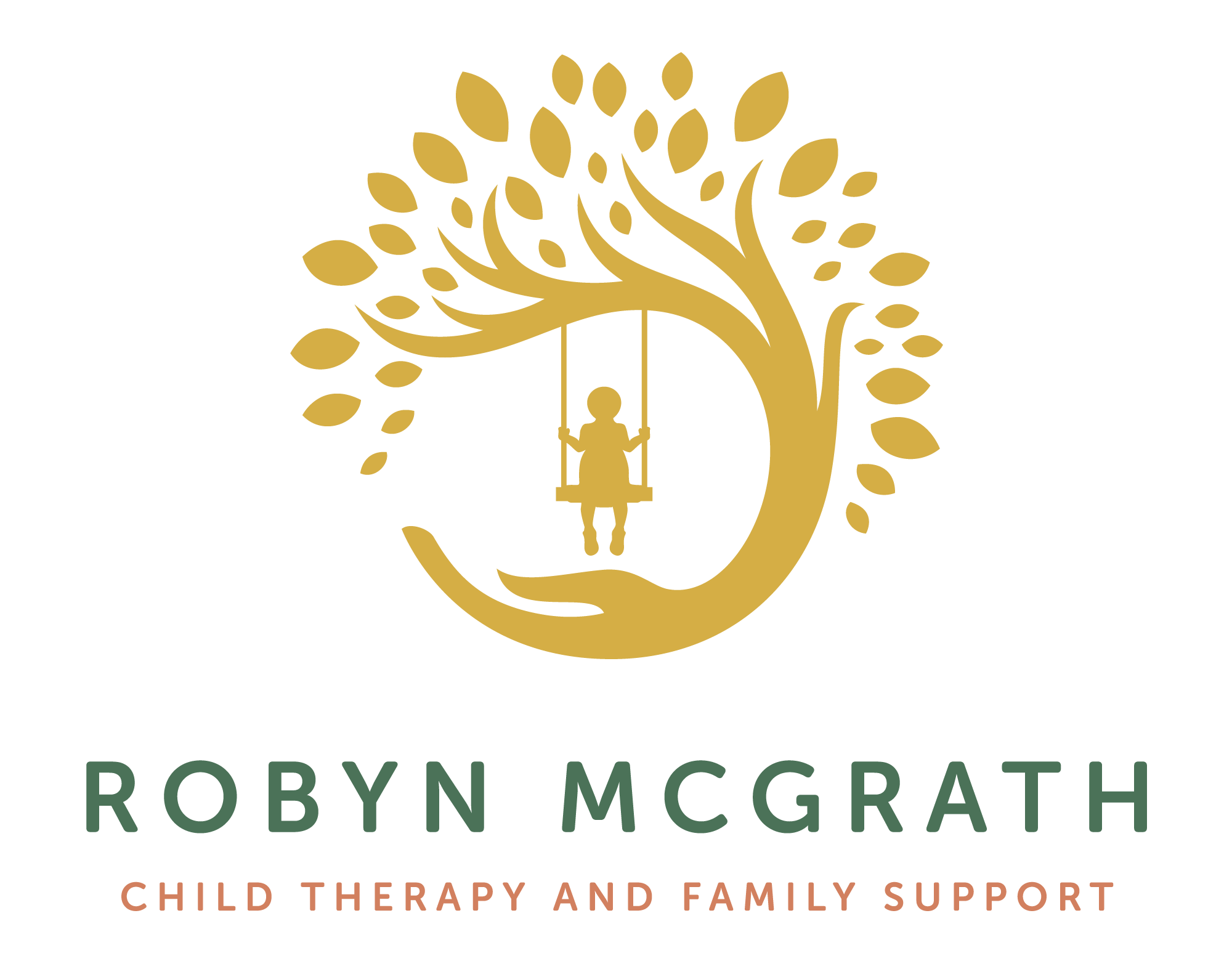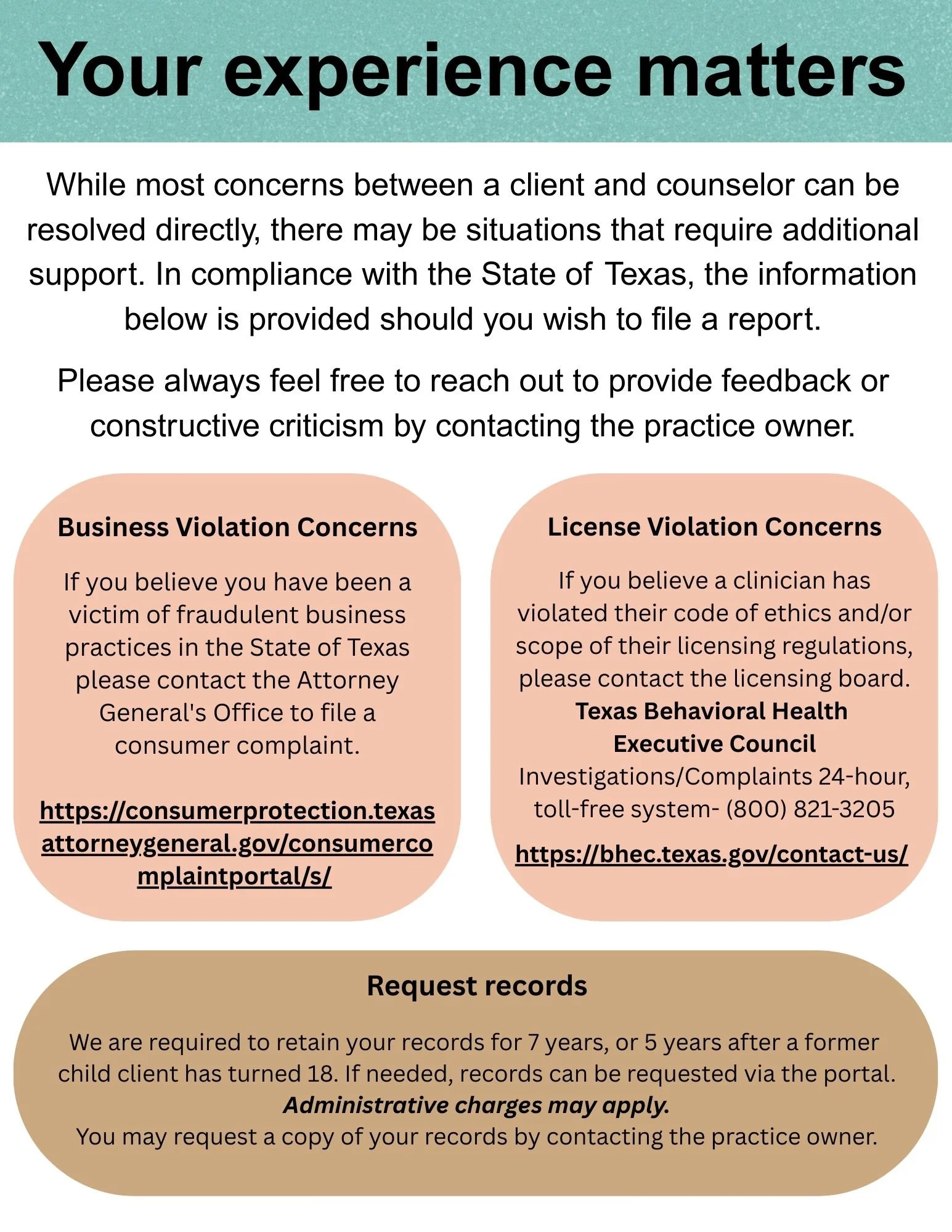+ What is play therapy and how does it help children?
Play therapy is to children what talk therapy is to adults. Play therapy builds on the natural way that children learn about themselves and their relationships in the world around them and helps them to express their feelings more easily through toys instead of words (Axline, 1947; Carmichael, 2006; Landreth, 2002).
+ Who practices play therapy?
The practice of play therapy requires extensive specialized education, training, and experience. A play therapist is a licensed (or certified) mental health professional that has earned a Master’s or Doctorate degree in a mental health field with considerable general clinical experience and supervision. With advanced, specialized training, experience, and supervision, mental health professionals may also earn the Registered Play Therapist (RPT) or Registered Play Therapist-Supervisor (RPT-S) credentials conferred by the Association for Play Therapy (APT). I am a Registered Play Therapist-Supervisor, which means that I have hours of additional training and supervision beyond a masters degree. As an RPT-S I supervise other therapists as they work towards becoming future Registered Play Therapists.. Obtaining the RPT-S credential holds me to a high standard as I help usher new Play Therapists into the field of helping professionals.
+ How long will it take?
Play therapy sessions are held weekly and vary in length but usually last about 50 minutes. Research suggests that it takes an average of 20 play therapy sessions to resolve the problems of the typical child referred for treatment. Of course, some children may improve much faster while more serious or ongoing problems may take longer to resolve (Landreth, 2002; Carmichael, 2006).
+ How is play therapy different from other therapies?
Play therapy differs from regular play in that the therapist helps children to address and resolve their own problems. Through play therapy, children learn to communicate with others, express feelings, modify behavior, develop problem-solving skills, and learn a variety of ways of relating to others. Play provides a safe psychological distance from their problems and allows expression of thoughts and feelings appropriate to their development.
+ What are the benefits of play therapy?
Play therapy helps children:
- Become more responsible for behaviors and develop more successful strategies.
- Develop new and creative solutions to problems.
- Develop respect and acceptance of self and others.
- Learn to experience and express emotion.
- Cultivate empathy and respect for thoughts and feelings of others.
- Learn new social skills and relational skills with family.
- Develop self-efficacy and thus a better assuredness about their abilities.
+ What’s the difference between play therapy and playing with my child at home?
Play therapists are specifically trained to provide an environment of acceptance, empathy and understanding in the play therapy room. Play therapy is not the same thing as playing. Play therapy uses the child’s natural tendency to “play out” their reactions to life situations, in the presence of a trained play therapist, to help the child feel accepted and understood and gain a sense of control or understanding of difficult situations.
+ What can I do to support my child?
- Be consistent and encourage your child to attend sessions regularly.
- Resist the urge to ask your child what they did in session or if they had “fun”. Sessions are your child’s special time and they should feel free to express themselves at their own pace without the worry that their parents will know exactly what happened. Your child’s therapist will share important themes and suggest meaning of play during parent consultations.
- Please don’t ask your child to ‘”be good” or check in with their therapist about session content. Your child should feel free to express their feelings in an uncensored way.
- Don’t insist that your child share certain things with their therapist (positive or negative.) Instead, share your joys and concerns with your therapist either by communicating through the weekly caregiver report, a phone call, or at scheduled consultations. Please do not discuss joys or concerns with the therapist in front of your child.
- Provide your child with a snack before arrival and encourage them to go to the bathroom before sessions.



